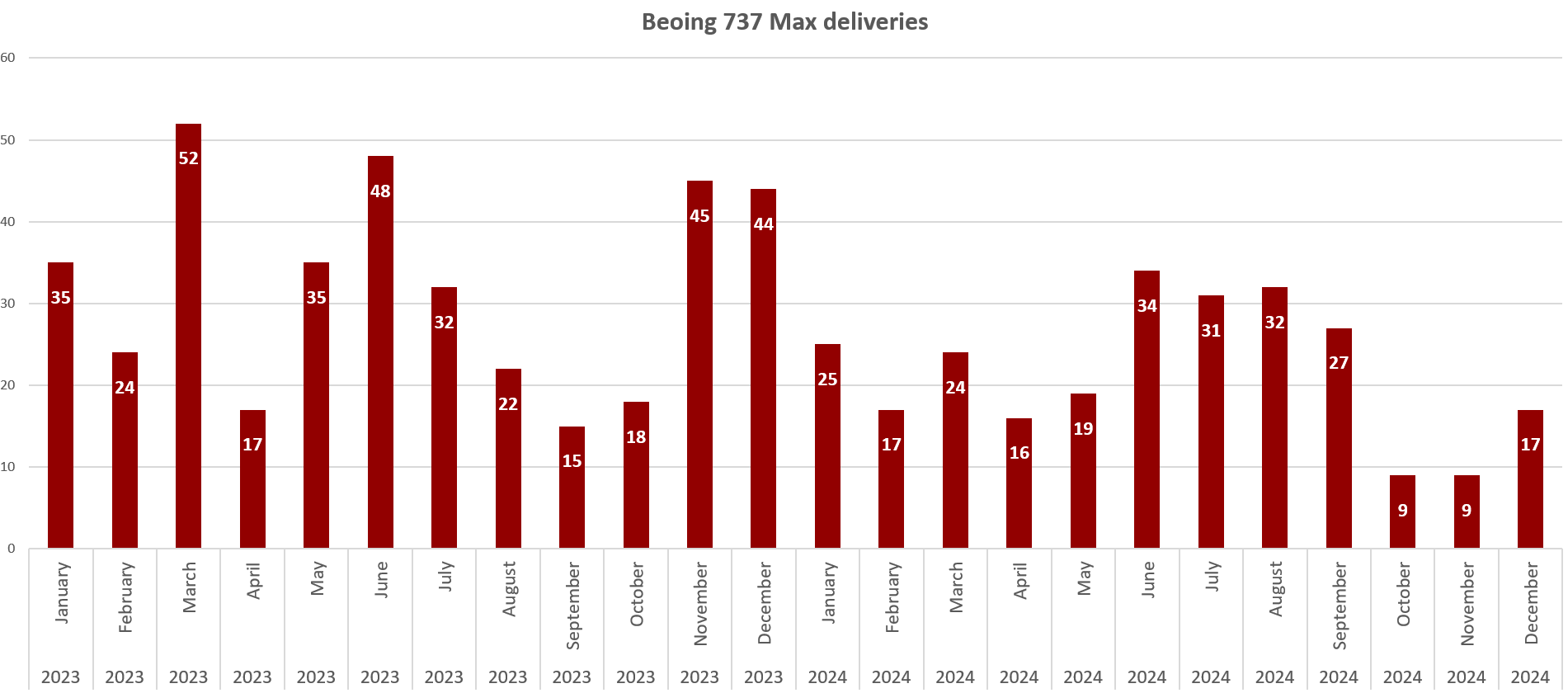Sean Duffy, appointed by Trump as the U.S. Secretary of Transportation, has confirmed that for now, the Trump administration will not change the production restrictions imposed on Boeing related to the company's flagship aircraft model, the Boeing 737 MAX.
Following a door latch failure in January of last year, which forced pilots to make an emergency landing, the FAA imposed a series of restrictions on Boeing due to concerns about the company's compliance with quality requirements in its production process. Consequently, the company has faced a series of unfortunate events pushing its stock prices lower. One of the FAA's decisions was to limit the number of Boeing 737 MAX aircraft produced by the company to 28 per month. With the change in administration, the restriction remains in place, and the condition for lifting it is the new secretary's assurance that Boeing will maintain quality even with increased production. For now, the company will have to continue dealing with the restriction, which has significantly impacted the number of aircraft delivered by the company over the past year. Except for August, every month in 2024 has shown a negative year-over-year growth rate. In the entire year of 2024, the number of delivered 737 MAX aircraft fell to 260 (-33% year-over-year).

Source: XTB Research, Boeing

📀Coinbase and MicroStrategy surge as Trump challenges Wall Street banks

US OPEN: Wall Street buoyed by robust data and shifting sentiment

Market wrap: European and US stocks try to rebound rebound 📈

Paramount Skydance shares under pressure after S&P warning


